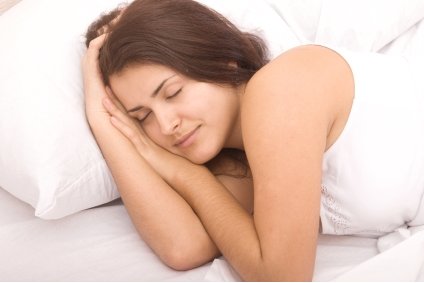Not everyone gets the best sleep every night. You’re either lying in bed for a few hours or waking up constantly during the night. Your sleeping pattern can easily be adjusted by improving eating habits, doing more physical activity, and taking naps during the day.
Your Diet
Usually, people are having small breakfasts, moderate lunches, and large dinners. Reverse that habit and you will be sleeping better! Having a large breakfast, a moderate lunch, and a light dinner will not only help you sleep better, but will give you more energy during the day. Having a large dinner before bed can cause heartburn. Moreover it is recommended that people have dinner at least 3 hours before going to bed. Avoid having caffeine after 3:00 PM. Foods and beverages that contain caffeine are sodas, teas, chocolate, and some energy bars. Also, although alcohol can cause drowsiness, it does ruin sleep patterns so it’s best try to avoid it as much as you can. Furthermore, try to consume all your beverages before dinner so you won’t be waking up in the middle of the night to go to the bathroom. If you enjoy snacking before bed, have a snack that is high in carbohydrates and has a high content of magnesium and/or is a good source of calcium. Eating foods such as apples, apricots, avocados, bananas, peaches, and nuts before bed will satisfy your needs!
Physical Activity
Although exercising does make you tired, it best to not vigorously exercise 3 hours before going to bed. After exercising, your body temperature rises which causes your body to feel uncomfortable thus, preventing sleep. Also, physical activity will stimulate your heart, brain, and muscles which is the last thing you need before going to bed. Exercising in the late afternoon or early evening has proven to be the best time to exercise since by the time you go to bed; your body temperature will have gone down. Though activities such yoga and weight lifting are good for you, cardiovascular activity promotes sleep best. Keeping your heart rate high for at least 20 minutes will help trigger sleep.
Natural Light
Your biological clock goes by darkness and light. Waking up early and getting out when the sun is out will keep your biological clock on track. Going for a walk in the morning will have a huge effect on your mood and how you sleep. Having natural light will improve your body’s sleep-wake cycle. Studies show that people who have a lack of light for long periods of time can experience a dramatic change in sleep, temperature, hormones, and mood.
Napping
A nap will become your best friend if you are sleep deprived. A nap renews your energy and alertness. Naps should be taken about 8 hours after waking up and should only be approximately 30 minutes. Many people take naps for much longer but this can cause you to wake up groggy and much more tired than before. For people who are extremely sleep deprived a nap that is 90 minutes long wouldn’t be too bad. If you nap for 90 minutes, your body has a chance to go through the sleep cycle once so you can feel energized when you awake. Not only does napping help you gain energy, but it can also help reduce heart attack risk and other heart problems. Studies were taken on men who napped occasionally and men who napped all the time. The men who napped occasionally had a reduced their risk of death by 12% more than men who did not nap. Men who had napped on a regular base reduced their risk of death by a remarkable 37%.
It is best to have a routine during the day so your body adjusts to a proper sleep-wake cycle. Have a routine before you go to bed; eat a snack, take a warm bath, or read a book. So before you try sleeping medications, try these natural ways to help you sleep better.

